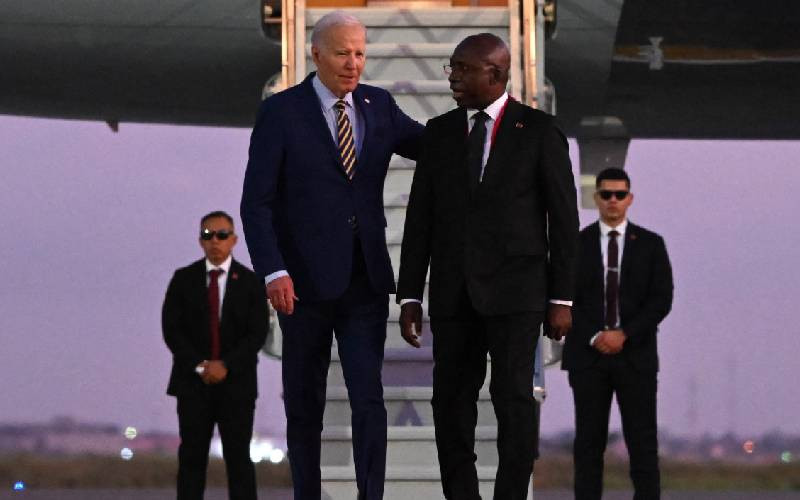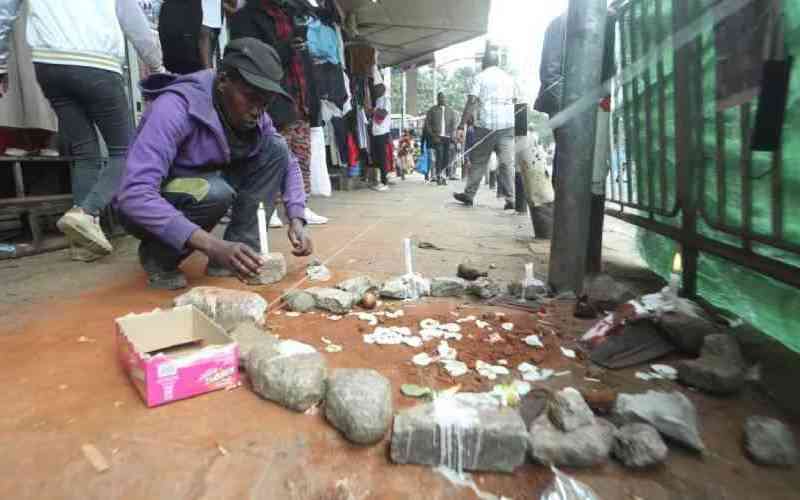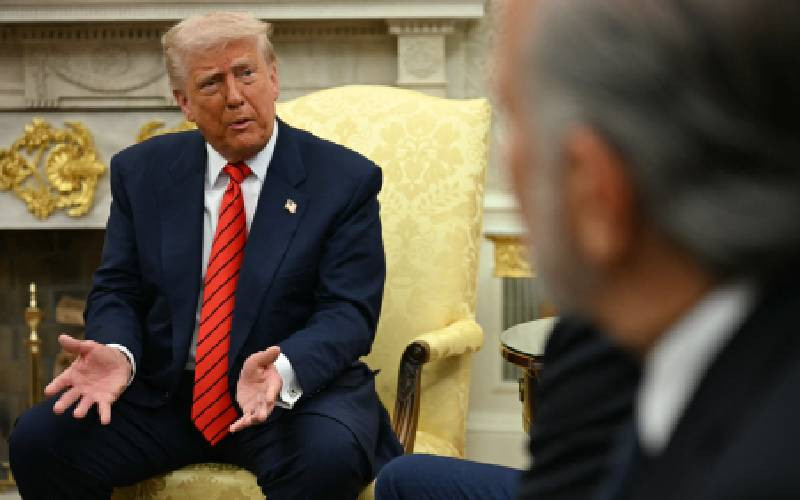
Joe Biden arrived in Angola Monday on the first and only trip to sub-Saharan Africa of his presidency which intended to underline US ambitions in Africa amid significant investment from China.
The US leader, who hands over to Donald Trump on January 20, is due on Tuesday to meet Angolan President Joao Lourenco in the capital Luanda and to deliver remarks at the National Slavery Museum.
On Wednesday, he is scheduled to travel to Lobito, a port city about 500 kilometres (310 miles) south of Luanda, to highlight US investments in the region.
The port is at the heart of the Lobito Corridor, a massive infrastructure project which has received loans from the United States, the European Union and others.
In anticipation of Biden's visit, the Angolan government declared December 3 and 4 public holidays and deployed heavy security across Luanda, a city of some 9.5 million people.
"It's a historic visit, not just because he's the first time a US President has visited Angola, but because it's really emblematic of President Biden's priority to strengthen global alliances and partnerships, and really of our strategic approach when it comes to US-Africa policy," John Kirby, the White House national security communications advisor, told reporters Monday.




With Biden carrying little political weight so close to the end of his term, the trip risks being overshadowed by his pardon on Sunday of his son Hunter on criminal cases related to tax evasion and the purchase of a firearm.
The pardon shocked Washington as Biden entered the White House in 2021 vowing to restore the "integrity" of a justice system that Democrats said had been corrupted by Trump, and because he had specifically vowed not to reprieve his son.
The president, 82, instead issued a "full and unconditional" pardon on Sunday, absolving 54-year-old Hunter Biden of any wrongdoing over the last decade, charged or otherwise, just ahead of his looming sentencing over gun and tax convictions.
Flagship Lobito project
By visiting Angola, Biden is fulfilling a promise made in late 2022 to visit the oil-rich Portuguese-speaking nation of 37 million people.
It is Africa's second-largest crude oil exporter with the oil industry making up about 90 percent of its exports. But many of its people are poor and jobless, with the youth unemployment rate at 58 per cent in 2023, according to World Bank figures.
Biden's trip is focused on the Lobito corridor, a multinational project to rehabilitate a 1,300-kilometre (800-mile) railway connecting the mineral-rich inland countries of Democratic Republic of Congo (DRC) and Zambia with Angola's Atlantic seaport of Lobito.
Biden called it "the biggest US rail investment in Africa ever" when he met Lourenco at the White House in December 2023.
The project is a piece in the geopolitical battle between the United States and its allies and China, which owns mines in the DRC and Zambia among an array of investments in the region.
Stay informed. Subscribe to our newsletter
It is "a real game changer for US engagement in Africa", Kirby said.
"It's our fervent hope that as the new team comes in and takes a look at this, that they see the value too, that they see how it will help drive a more secure, more prosperous, more economically stable continent."
Since Lourenco's election as president in 2017, US-Angola relations have warmed significantly in a turnaround from the Cold War years when the US funnelled covert aid to the National Union for the Total Independence of Angola (UNITA), the country's second-largest party.
But rights groups and opposition activists are accusing Angola's authorities of growing repression, including by clamping down on protests.
Human rights NGO Amnesty International said in a report released last month that Angolan police had killed at least 17 protesters between November 2020 and June 2023 as part of a long-running crackdown on dissent.